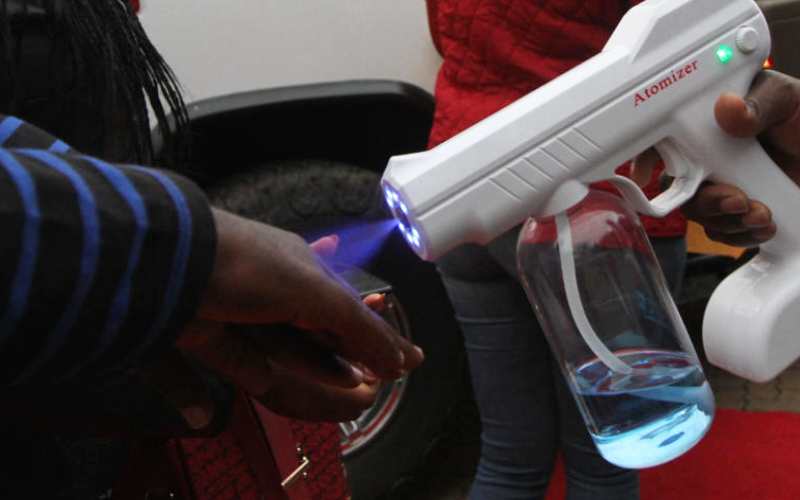×
The Standard e-Paper
Fearless, Trusted News

Kenyans sanitise using Atomizer hand sanitizer spray to help fight coronavirus. [Elvis Ogina,Standard]
A summary of Chinua Achebe’s ‘The Trouble with Nigeria’ says: “The eminent African novelist and critic, here addresses Nigeria’s problems, aiming to challenge the resignation of Nigerians and inspire them to reject old habits which inhibit Nigeria from becoming a modern and attractive country”. This summary might as well have been about the trouble with Kenya!